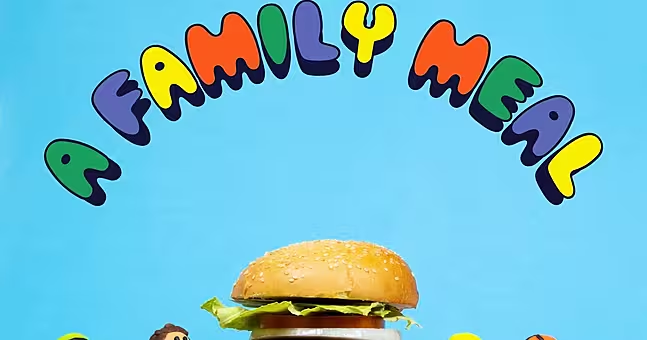Q&A: Jory Nash speaks to Paul Corby ahead of Saturday Toronto album launch


Singer / song slinger Jory Nash has a brand new record being launched at Hugh’s Room Live this Saturday. It’s called The Light Still Shines on the Main.
Here’s what he told Paul Corby about the new record:

Corby: Congratulations. This was what you could call an unexpected pregnancy. How spontaneous did the combustion seem to you when it occurred?
Jory: Well, I stopped playing music years ago, and I didn’t think I would return. So, up until about a year and a half ago, maybe two years ago, I would not have thought that there was a record coming, and then life kind of conspired to change that. It became apparent that there was a desire to write again, and then once I started having some songs, there was a desire to record.
And then once I did a crowdfunding and raised the money, I had the financial wherewithal to make a record. And once the ball was rolling, it didn’t have to roll uphill. It gathered some speed, and it was a really smooth process. But still, it took a little longer than I had hoped.
Corby: Music has a life of its own. Can you intuit what it was that called this music out of you?
Jory: Yeah. The story behind the record is that it kind of catalogues and documents the things that me and my family went through in the years during COVID when my wife was diagnosed with cancer. We endured two and a half years of surgeries and chemo and all that, and then, during the chemo, we were living in a rental house in Toronto and the basement caught fire. So we needed to get out, because it just didn’t feel like a safe place. And we relocated to the town of Coburg.
My wife has a sister in Colborne, which is one town over, and I used to be involved with the Shelter Valley Folk Festival here, so I still had friends in the area. My son, Jasper, was four at the time and he was just starting junior kindergarten so it was a new beginning, but not all together foreign. And it was still close enough to Toronto, so it sort of checked all the boxes for us.

Then along the way, you know, my wife got the all clear and then right around that time my older sister was diagnosed with a cancer, a much more aggressive cancer than what my wife had, and she was, unfortunately, dead within about seven months.
And so the writing took on central themes of loss, family, new beginnings, almost a life cycle of its own in some ways.
Corby: And yet the resettlement prompted a rejuvenating incentive in the long run. Hard times will sometimes have that effect.
Jory: Yeah. I wouldn’t wish it on anybody, though. Given a choice, I would prefer to have not gone through the things that we went through, but I certainly know that I was able to funnel a lot of the emotions and the experiences into a creative outlay that I wouldn’t have been able to summon otherwise. I don’t know if I would have written at all, and I haven’t written anything since, you know.
The songs were really composed and condensed for me within a year or so. When I used to do music, I’d be working on a record, but I’d already be writing songs for the next one. But with this one, no, I haven’t even tried to write a song since.
Still, I have these tunes that document a tough period of time, and hopefully, in a way that has optimism, not just for me, but for listeners, because you can either write songs as another person’s story or you can write a song that people can put themselves in and say, I’ve experienced something like that. I’m getting early responses from people who have gone through similar battles, especially with cancer.

Corby: Do you remember when albums were actually albums? They were like photo albums, and you’d turn the page and then each one would be a sleeve containing one song and that would be sort of a concise history of a certain period of time that the artist had gone through. That seems to be what you’ve produced here – a record full of images. Not all of them are linear. But one of them is a fox. Can you tell us about that?
Jory: Yes. There’s a song called “Come Alive,” and I was doing a little bit of writing up north, in a cabin in the woods, and it was sort of becoming springtime and it was nice, everything was starting to open up.
There’s a Gillian Welch song called “Winter’s Come and Gone”; it’s like, it’s got a hopeful quality to it. And so, I was writing, and I looked out, and there was this fox playing in the field. Just kind of jumping around after a mouse, I don’t know, looking for food. So I just had the idea that this spring / coming alive metaphor is a good metaphor for my own musical dormancy.
It’s also the only song on the record, and I did this on purpose, that is not written in the first person. It’s a third person narrative. I tend to write first person a lot, even if I’m not the “I” that I’m singing about, but in this particular record, I really wanted to take me out of it and say, “This is a story.”
Corby: So nature comes to save us once again. Your mother wanted you to write some upbeat tunes too. Is she happy with the album?
Jory: She is happy! She said it sounds so lush. She happened to come out and visit us in the summertime, and it had just been mastered, so I sat her down and put the headphones on her and she listened to it on my computer. She’ll be 83 on the same day that the record comes out.
Corby: We’re talking about Nov. 1 at Hugh’s Room Live. What sort of accomplices are you going to bring into the space?
Jory: Because the record is more of a group record, I put a band together. I wrote, and I arranged things with a group of musicians in mind. It’s difficult, number one, financially, to play with a band, and it’s also difficult because the people that I work with are all in other people’s bands traveling around.
But for at least one show, I wanted to try to get as many together as possible. So, the core group that’s on the record is Jason Fowler on lead and rhythm guitars, Maury La Foy on bass, Robbie Grunwald on piano and keyboards and Mark Mariash on drums. I’m also going to have my dear friend Lori Cullen there, who sings harmony on five songs on the record.
Corby: She’s great on the record. You can hear her tones shining away. So now that you’re out in the big world again, Jory, what trail that have you chosen to follow in the upcoming months?
Jory: I have no illusions about this business anymore, Paul. I used to play 100 to 120 dates a year. Those days are gone for a lot of reasons. I don’t have the booking connections. I can’t be on the road that long. You can’t go to the States. I used to go to the United States twice a year. The process is so expensive now, and [it’s] difficult to get the visas and, as well, it just doesn’t feel like a place I really want to spend any time in right now. So, I am playing selectively when it makes sense, where it makes sense — a lot of house concerts for people who really like what I do, and a few festivals next summer that I’m now negotiating, the odd theater show as well where and when it makes sense.
If I end up playing 30, 40 shows a year. I’ll be very pleased.
Corby: Okay, so you’re a supply folk artist now — Jory on demand. A song here called “Bombs Away,” is about letting her rip, come what may, damn the torpedoes. Is that the work philosophy you’ve arrived at?
Jory: I guess it would be to just take it as it comes, you know? That song actually was intended to be almost a palate cleanser because, in the song cycle, the song immediately before it is “Doxorubicin,” a solo, dirge-like piano piece that is about the cancer drug that my wife had to endure.
And I had this idea — I’m a big fan of the Zombies, right? “The Time of the Season” and that crazy organ solo — so I love it! And I wanted to write something on the Rhodes, like an electric piano, with the idea that it would have a big solo. And I can write and I can play rudimentary piano, but I’m not that guy.
I have a friend who I went to school with, Rob DeBoer, who is a tremendous musician — Grammy nominated — and he and his wife, their kids are out of the house, and they moved to a farm near to me in Northumberland County. Everything seemed to be aligning that we should work together. So, I had this song and I said, “Hey, this is kind of what I envision. Can you help me?” And he has a studio at home, and he plays lots of instruments, so he’s playing everything on the track. It actually became way more upbeat and funky and groovy than I ever envisioned. And it’s a little bit ambiguous. Like sometimes I write cryptically, lyrically, and sometimes I don’t. This is one that I think could mean different things to different people.
Corby: How widespread do you imagine that the light in this music will travel?.
Jory: The goals are to just to try to have as many people hear it as possible. We’re in a day and age of super information at your fingertips. There’s infinite songs available at any given time, so you gotta cut through a lot of noise, so I’m bypassing that by talking to supportive people that I’ve known and some people that are just coming to me as well. You know. Spreading the light around.
Related
link







